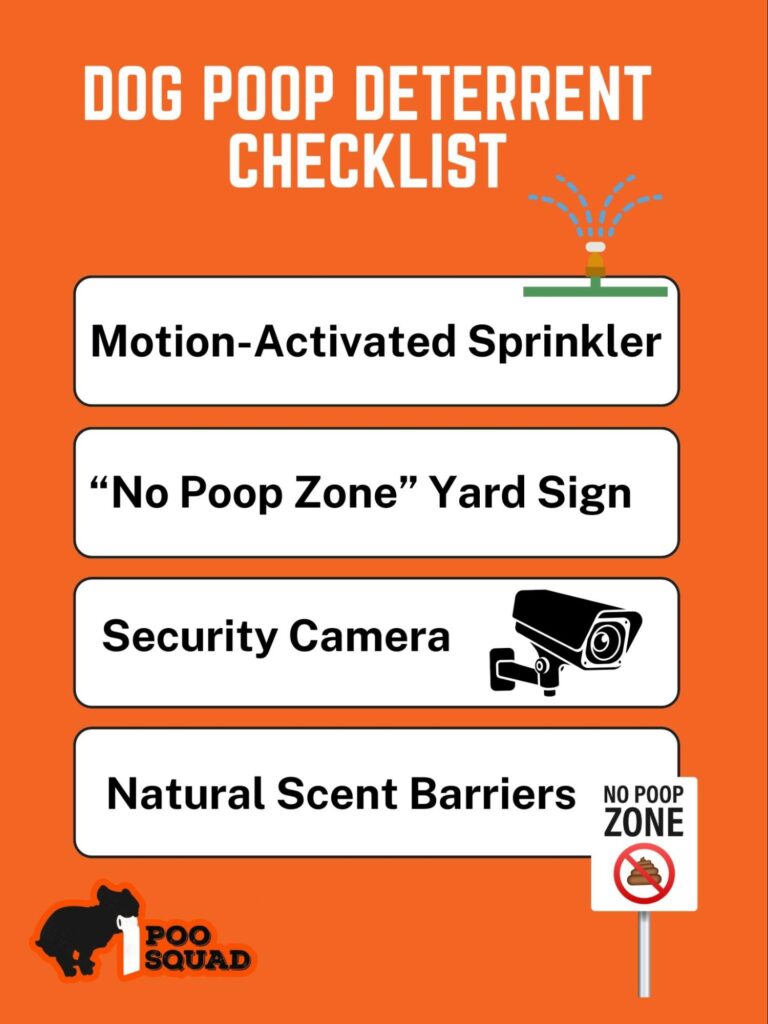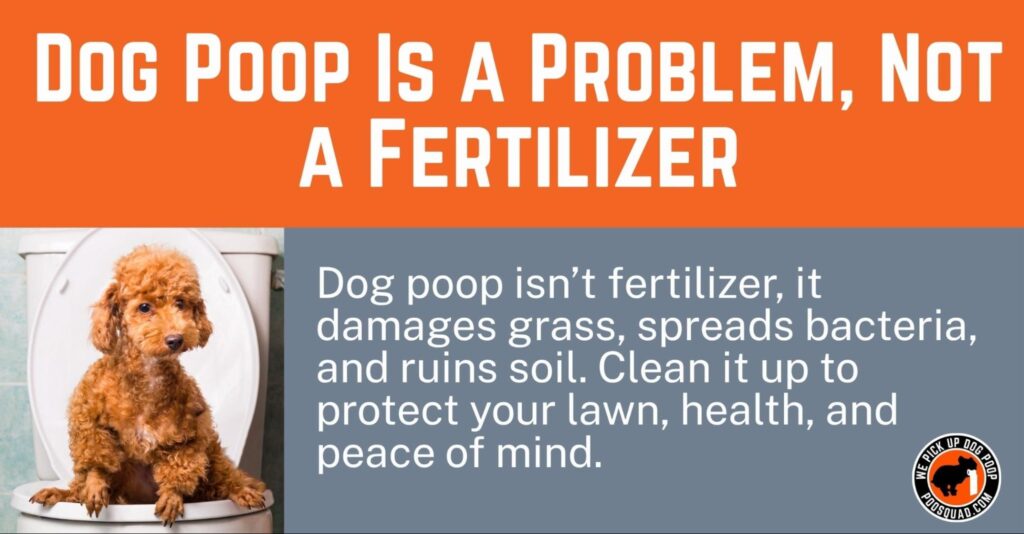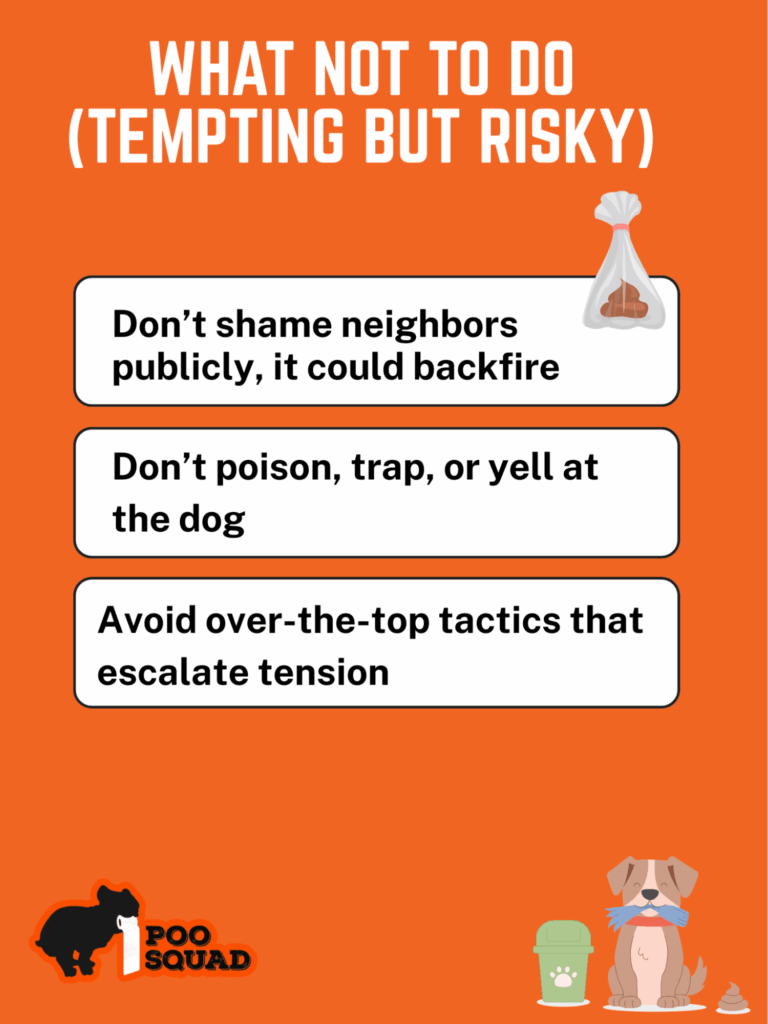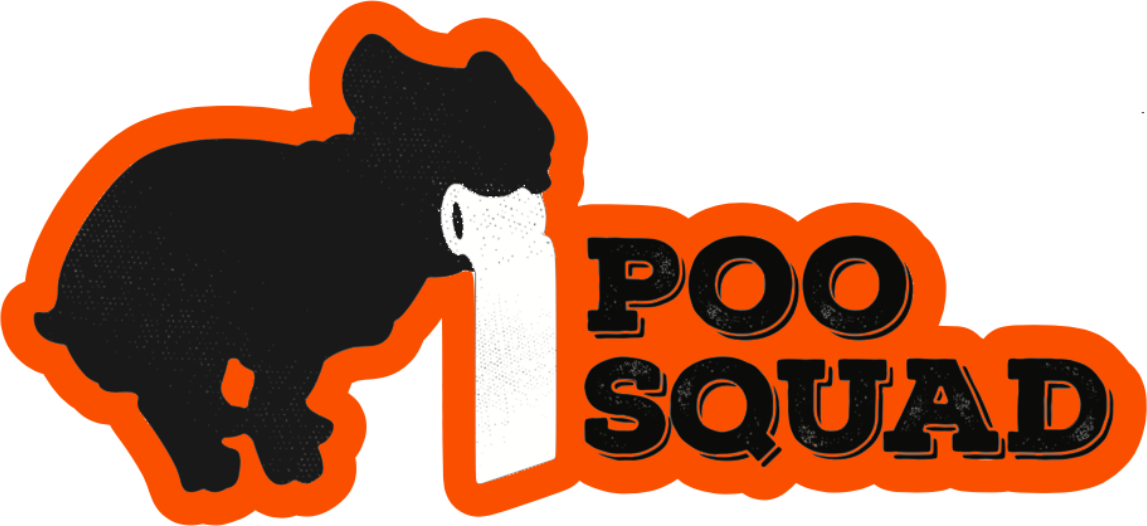To stop a neighbor’s dog from pooping in your yard, start with a respectful conversation, add deterrents like motion sprinklers or cameras, and track repeat offenses. If it continues, document the incidents and consider contacting animal control or your HOA for support.
If you’re constantly finding mystery piles in your yard, and you don’t even own a dog, you’re not alone. Unwanted dog poop creates lawn damage, spreads bacteria, and quickly turns neighborly relationships into tense standoffs. Whether it’s a loose pet, a careless dog walker, or that one neighbor who always “forgets” the bag, the outcome is the same: you’re stuck cleaning up after someone else’s dog.
The fastest way to stop it?
A smart combo of respectful conversation, physical deterrents, and consistent tracking. It’s not about revenge or starting a feud; it’s about protecting your space, your time, and your family’s health without escalating the issue.
We’ll cover tools that work (and ones that backfire), what the law allows, and how services like Poo Squad can clean, sanitize, and help you reclaim your yard, no awkward conversations required.
Step 1: Start with a Respectful Conversation
If there’s even a chance your neighbor doesn’t know their dog is leaving surprises on your lawn, the best place to start is with a calm conversation. Forget the passive-aggressive signs or angry rants; those only raise defenses. You want a fix, not a feud.
How to Approach Your Neighbor Without Conflict
Timing matters. Don’t catch them before their morning commute or while they’re juggling kids. A weekend moment when things are calm goes a long way. Knock on the door, stay polite, and try opening with something neutral like:
Hey, I wanted to check in. I’ve been finding some dog waste in my yard, and I wasn’t sure if maybe your pup had wandered over?
Stick with “I” statements like “I noticed…” or “I’ve been having trouble keeping my yard clean lately…” instead of pointing fingers. It keeps the tone light while still making your point.
If you haven’t seen their dog doing the deed, that’s okay. You can still open the conversation gently:
I haven’t caught exactly who it is, but I wanted to ask if you’ve had any issues with your dog slipping out, or if you’ve noticed anyone else not cleaning up?
This leaves room for understanding while making it clear that you’re paying attention.
And yes, there’s always the worry of getting it wrong. If you’re unsure who owns the dog, ask around or wait to gather proof. It’s better to be silent than to accuse the wrong person and thank a good neighbor.
What to Do If They’re a Renter or You Don’t Know Who Owns the Dog
When you’re dealing with a rental property, go straight to the source. Property managers, landlords, and leasing offices are often responsible for enforcing pet policies. A quick call or email can lead to a quick fix without any personal conflict.
Not ready to go full-on investigator mode? You can always leave a short, polite note:
“Hi! I’ve been finding some dog waste in my yard recently and was wondering if you might be able to help. If it’s your pet, would you mind keeping an eye out? I’d appreciate it!”
Handwritten, friendly, and non-accusatory, it might be all it takes to fix the problem before it gets worse.
And while you’re working on the neighbor angle, you can still protect your space. With yard cleanup services that include sanitizing, deodorizing, and even customized poop reports, you don’t have to wait for someone else to do the right thing. Here’s how to get that peace of mind.
Step 2: Use Proven Deterrents to Keep Dogs Out

Even if your neighbor means well, some dogs just wander, or worse, aim for your yard on purpose. The good news? There are several humane ways to shut it down without turning your lawn into a landmine of confrontation.
Humane Deterrent Options That Work
Motion-activated sprinklers are a crowd favorite for one reason: they startle, not harm. When a dog strolls into your yard, the sudden burst of water encourages them to avoid it next time. You don’t need to notify your neighbor before installing one; it’s your property, and these devices are legal in most areas as long as they don’t target humans or roadways.
For a scent-based approach, try natural repellents like vinegar, citrus peels, or coffee grounds along fence lines or common entry points. These smells are unpleasant to dogs but safe for your lawn. Just avoid using ammonia or pepper sprays; they can irritate pets and defeat the purpose of being respectful.
Dog whistles or ultrasonic devices are another silent but powerful option. These high-frequency tones irritate most canines and are inaudible to humans, making them great for discouraging regular visits without drawing attention.
And then there’s the low-tech route: coffee cans filled with coins. Rattle one loudly when you catch the act happening; it delivers a quick jolt of noise that sends most pups running.
High-Visibility Solutions
Sometimes, a visual reminder is all it takes. “No Poop Zone” signs near the edge of your lawn or walkways signal that someone is paying attention. Bonus points for humor, people are more likely to respect a sign that gets a chuckle.
Want to go even bolder? Poop flags, little markers where the waste was left, make it crystal clear that you’re keeping track. It’s awkward, but that’s the point.
Security cameras serve double duty. Not only do they help you identify the repeat offender, but the presence alone acts as a deterrent. Dogs may not notice, but dog owners will. Plus, if you ever need to report an issue to the city or HOA, you’ll have clear evidence.
If the damage has already been done and you’re tired of playing backyard detective, you can still reclaim your space. From deodorizing services to poop removal, there are ways to make the mess disappear, no gloves required. Let someone else handle the worst part.
Step 3: Document Every Offense (Here’s How)
It’s easy to get worked up when you step into a fresh pile of someone else’s problem. But emotion doesn’t win arguments; evidence does. If things get messy (literally and legally), having a paper trail is the difference between an awkward conversation and a clean resolution.
Why Evidence Matters More Than Emotion
A few snapshots on your phone with time stamps can go a long way. If the problem is happening regularly, take wide-angle shots to show it’s the same location. Include the waste itself (gross, yes, but useful), plus any paw prints or tracks.
Want to go to the next level? Trail cams are a stealthy, motion-activated option that captures footage without you having to watch like a hawk. Some ask, “Is a trail cam overkill?” If it brings peace of mind and protects your lawn, it’s doing its job.
Create a basic incident log: date, time, what you found, and how often it’s happening. This is the kind of record that city ordinances, HOAs, or property managers pay attention to when you report ongoing violations.
And if you ever need to escalate things formally, video evidence is your best friend. It’s hard to argue with the facts when the camera sees all.
How Poo Squad Customers Document Without Drama
Not everyone wants to build a spreadsheet over dog poop, and that’s fair. Some folks prefer a quieter approach.
One way that’s worked well? Let the pros keep the records for you. Customers who use regular poop-scooping services automatically receive photo updates of secured gates, QR-tag-verified crew IDs, and automated service logs with every visit. That’s not just for accountability, it’s peace of mind in your inbox.
One customer once shared how she burst into tears after her first cleanup. The sight of her yard finally free from months of buildup was overwhelming. She hadn’t realized how much stress it had caused until it was gone.
You don’t have to live with the mess or go full private investigator mode if you don’t want to. Take back control and let someone else track the trail.
Step 4: Clean Up Smart, Protect Your Lawn & Family
It’s easy to treat dog poop like a minor nuisance, until you realize what it’s doing to your yard. It’s a biohazard sitting right where your kids play, your pets roam, and your grass tries to survive.
Why Dog Poop Isn’t Fertilizer

Dog poop does not work like cow manure. It’s acidic, bacteria-laden, and packed with ammonia, enough to scorch grass and kill plants instead of feeding them. Each gram can contain over 23 million coliform bacteria, including E. coli, parasites, and viruses that don’t just disappear with the next rainfall.
Left sitting, that waste seeps into soil, clings to shoes and paws, and runs into storm drains, dragging dangerous bacteria into local water systems. Now add a toddler to that equation. One parent put it best: “My toddler plays in that area, I’m terrified she’ll touch something gross.”
That fear is justified. And it’s avoidable.
Poo Squad’s Sanitation Tips
Regular scooping is step one. But keeping your yard truly clean takes more than just picking up poop. Here’s how it’s done right:
- Tools are sanitized between every yard, not just wiped off, but fully disinfected to stop cross-contamination between homes, especially if a dog is sick.
- Deodorizer treatments can be added to kill lingering bacteria and smells, turning your yard from “walk carefully” to “welcome mat.”
- For households with escape artists, free QR-coded dog tags help reunite pets with owners quickly if they ever wander off. Anyone who finds your pet can scan the tag and contact you instantly.
There’s no reason to risk your family’s health or your weekend peace of mind when clean-up and prevention can be this easy. Schedule a service that handles it all and get your lawn and your sanity back.
Step 5: Understand Your Legal Options (If It Doesn’t Stop)
Sometimes, the polite conversation, the poop flags, and even the sprinklers still don’t do the trick. If you’ve tried everything and that familiar mess keeps showing up, it’s time to know your rights and how to enforce them the right way.
Know Your Rights as a Homeowner
Most cities and counties have laws on the books about leash requirements, pet waste removal, and nuisance violations. If a neighbor allows their dog to repeatedly defecate on your property, it may qualify as neglect or even trespassing, depending on how the dog is getting into your yard.
But no matter how tempting it feels, don’t throw the poop back over the fence. It might feel like justice, but it could land you in legal trouble. That move turns a sanitation issue into a neighbor dispute with legal consequences.
Instead, lean into the paper trail you’ve been building. The law is on the side of homeowners who have proof and patience.
When to Escalate to Animal Control or Law Enforcement
Once you’ve documented incidents (photos, dates, videos), you have leverage. Animal control can issue warnings or citations if a pet owner fails to follow local ordinances. If the issue is ongoing and affecting your health, safety, or property value, law enforcement might step in.
Not ready to bring in the badges?
Neighborhood mediation programs can help resolve issues quietly. These are often offered by local governments or community boards and bring in a neutral party to help settle the problem without a court.
If you’re part of an HOA or live in a managed community, file a formal complaint. Many homeowners find success by letting the HOA handle enforcement quietly behind the scenes.
And what about the idea of charging your neighbor for cleanup?
Can I bill my neighbor for cleanup?
Technically?
Only if they agree to it or a court orders it. But if you’ve got video evidence, logs, and a history of attempts to resolve the issue, a small claims court may side with you. Still, most people prefer a less combative route.
There’s an easier way to avoid the legal drama altogether: keep the yard clean, document the mess, and make sure it’s never your job to deal with it again.
What Not to Do (Tempting But Risky)

When you’re stepping around piles of someone else’s problems, it’s easy to let frustration take over. But before you blast out a passive-aggressive group text or start plotting revenge, pause. Some reactions might feel justified, but they only make things worse.
Don’t shame neighbors publicly, it could backfire
Posting pictures, naming names, or going on a rant in the neighborhood Facebook group might feel like a quick fix. But it rarely solves the problem. People get defensive, and the last thing you want is to become the topic of the next block party.
Don’t poison, trap, or yell at the dog
This should go without saying, but dogs aren’t the problem; humans are. Harming or threatening an animal can get you in serious legal trouble. Even yelling at the dog can escalate things with its owner, especially if it’s caught on video.
Avoid over-the-top tactics that escalate tension
Some folks have tried extreme deterrents like pouring chemicals on lawns or booby-trapping flower beds. That kind of behavior turns a simple nuisance into neighborhood warfare, and it often violates the same ordinances you’re relying on to fix the issue.
What if my neighbor retaliates?
That fear is valid. When a situation turns hostile, it doesn’t just stay about poop. It can affect your family’s safety, your property, and your peace of mind. The goal is to solve the problem, not start a feud.
If it ever feels like you’re one pile away from snapping, don’t carry that stress alone. There are clean, quiet, no-drama options that get the job done while keeping your hands (and your reputation) clean.
Pro Tips from the Poo Squad Playbook
Over the years, some lessons have come the hard way, from rogue retrievers sneaking through fences to mystery piles causing full-blown neighbor showdowns. But through all the scooping, some smart strategies have emerged that go beyond just picking up poop.
Bright uniforms aren’t just for style
Wearing high-vis orange might seem like overkill to some, but there’s logic behind it. When someone sees a figure in their yard, even for a second, they want instant recognition, not confusion. A uniform that stands out helps reduce awkward encounters and puts homeowners at ease. It’s not just safety, it’s signaling trust.
Poop reports aren’t gross, they’re useful
Nobody wants to talk about dog waste, but the truth is, it can say a lot about your pet’s health. Monitoring changes in consistency, color, or frequency can be the first clue that something’s off. A well-trained eye notices those red flags and gives owners a heads-up before a minor issue turns serious.
Plus, for families who hire someone to clean up, this is info they’d never see otherwise. It’s not about being nosy, it’s about being proactive.
QR dog tags stop neighbor confusion
When someone finds a loose pup, figuring out where it belongs can be a guessing game. A custom QR-tagged dog ID skips all that. One scan takes the finder straight to the dog’s profile, complete with contact info and return instructions. No social media posts, no shelter waits, just a fast reunion.
And when it comes to neighborhood disputes, these tags also help owners confirm if that dog is their dog.
From poop logs to tech-friendly tags, these are the small touches that keep yards clean, neighbors cool, and dogs safer. That’s what smarter cleanup looks like.
Final Thoughts & Next Steps
It’s easy to get frustrated when someone else’s dog keeps turning your lawn into a toilet. But behind every poop problem is a chance to fix things without turning your neighborhood into a battleground.
Start with empathy. Not everyone realizes their dog’s roaming, or how much damage it’s causing. A calm conversation, some creative deterrents, and a little patience go a long way. And when that’s not enough? That’s where cleanup services and proper documentation step in to handle what others won’t.
If you’re at the point where scooping poop and chasing solutions is eating into your weekends, it might be time to pass the shovel. Schedule professional help and let someone else keep your yard clean, your gates latched, and your sanity intact.
Don’t let one dog (or one lazy neighbor) ruin the peace you’ve built at home. There’s a clean, easy fix, and you don’t have to do it alone. We’ll take care of the crap, literally.
Frequently Asked Questions (FAQ)
What natural dog deterrent won’t hurt my grass?
Citrus peels, vinegar, and coffee grounds are safe, lawn-friendly options that dogs typically avoid. Avoid chemical sprays or ammonia-based solutions, as they can harm your soil and plants over time.
Can I legally use cameras facing my yard?
Yes. As long as the camera is pointed at your property or public areas, you’re within your rights. Avoid aiming directly into your neighbor’s windows to stay on the right side of privacy laws.
What if the dog only poops at night?
Set up a motion-activated camera or sprinkler. Both work well after dark and can provide evidence if you’re struggling to ID the culprit. You can also leave temporary markers (like flags) to track new droppings by morning.
Can I hire someone to clean up my neighbor’s mess?
Absolutely. A cleanup service doesn’t ask whose dog it was; they just restore your yard to poop-free status. Many homeowners book it once, then realize it’s worth doing regularly. Here’s how to schedule that.
Who’s responsible for shared yards or townhomes?
Responsibility often falls on whoever manages the property, whether that’s an HOA, a landlord, or a property manager. If there’s no pet policy enforcement, document the issue and bring it up during a board meeting or lease review.
